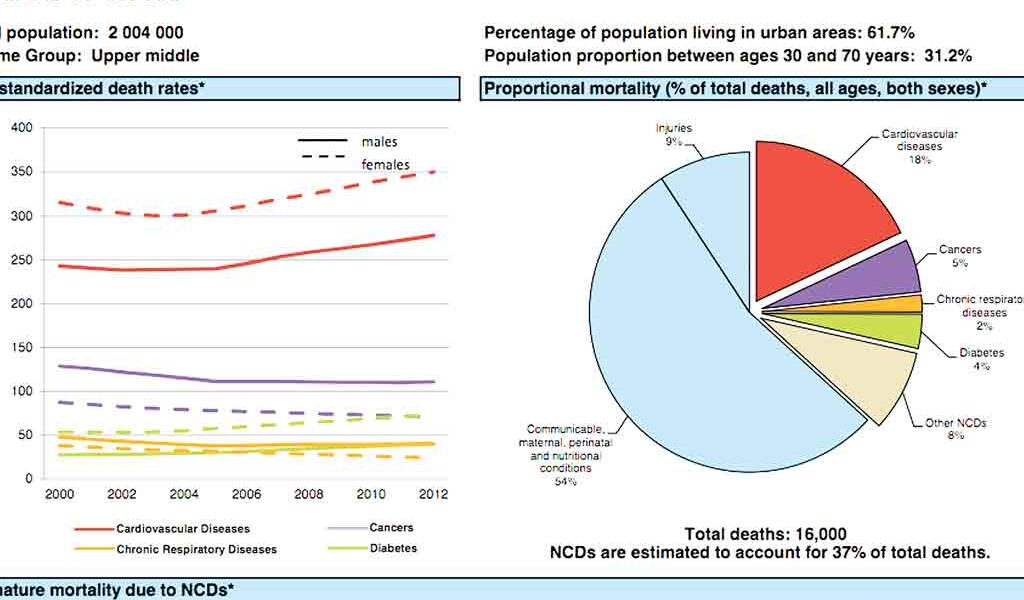- Deaths exceed those due to TB, malaria and HIV combined •31% of Batswana are overweight
- Many Batswana are unaware that they have NCDs • 2017-2022 NCD Strategy under development
KAGO KOMANE
President Ian Khama says government will continue to pursue stringent regulations and policies aimed at reducing lifestyle illnesses associated with non-communicable diseases (NCDs), which are responsible for most deaths in the country.
He said the burden of NCDs such as cardiovascular diseases, diabetes, cancers, and chronic respiratory diseases is significant and rising in Botswana. Deaths due to NCDs he said exceed those due to TB, malaria and HIV combined. “These conditions not only kill, they are potentially debilitating.”
“Government has intensified the fight against NCDs and their risk factors. The 2017-2022 NCD Strategy that is under development emphasizes a multi-sectoral approach to NCDs as these diseases are influenced by individual lifestyles. The role of the individual and communities cannot be overemphasized in the fight against NCDs, by choosing a healthy lifestyle to reduce risk factors of NCDs such as avoidance of tobacco use, harmful use of alcohol, other substances, unhealthy diet, and inadequate physical activities,” he said.
According to a 2014 national survey to assess the burden of NCD risk factors in Botswana, 31% of Batswana are overweight, 18% smoke, and 20% do not engage in enough physical activity. Of the 44% of Batswana who consume alcohol over half were further reported to drink heavily. Furthermore, many Batswana are unaware that they have NCDs. We found that 11% of Batswana had raised total cholesterol and many of them had not been diagnosed or managed at facilities. Furthermore, over 70% of cancers are diagnosed at advanced stage, which significantly lowers the chances for cure and long-term survival.
Just last month, governments from around the world committed to new action to reduce suffering and death from non-communicable NCDs, primarily heart and lung diseases, cancers and diabetes, the world’s leading killers. Governments endorsed the Montevideo Roadmap 2018-2030 on NCDs as a Sustainable Development Priority at the three-day Global Conference on NCDs in Montevideo, hosted by the World Health Organization (WHO).
World leaders pledged to reduce premature deaths from NCDs by one-third by 2030 as part of the United Nations’ Agenda for Sustainable Development. According to WHO, NCDs kill 40 million annually, more than any other cause of death. Of these deaths, 15 million occur prematurely among people aged 30-70 years, and 7 million in low and low-middle income countries.

